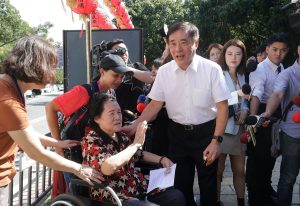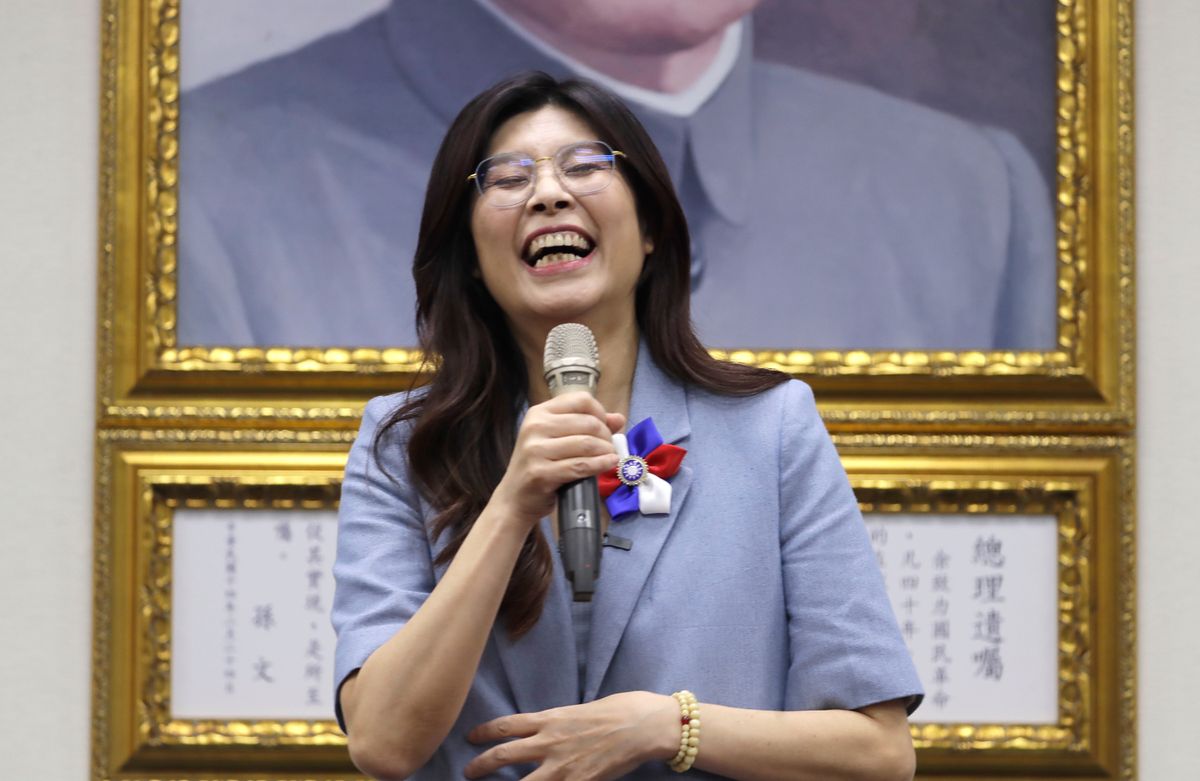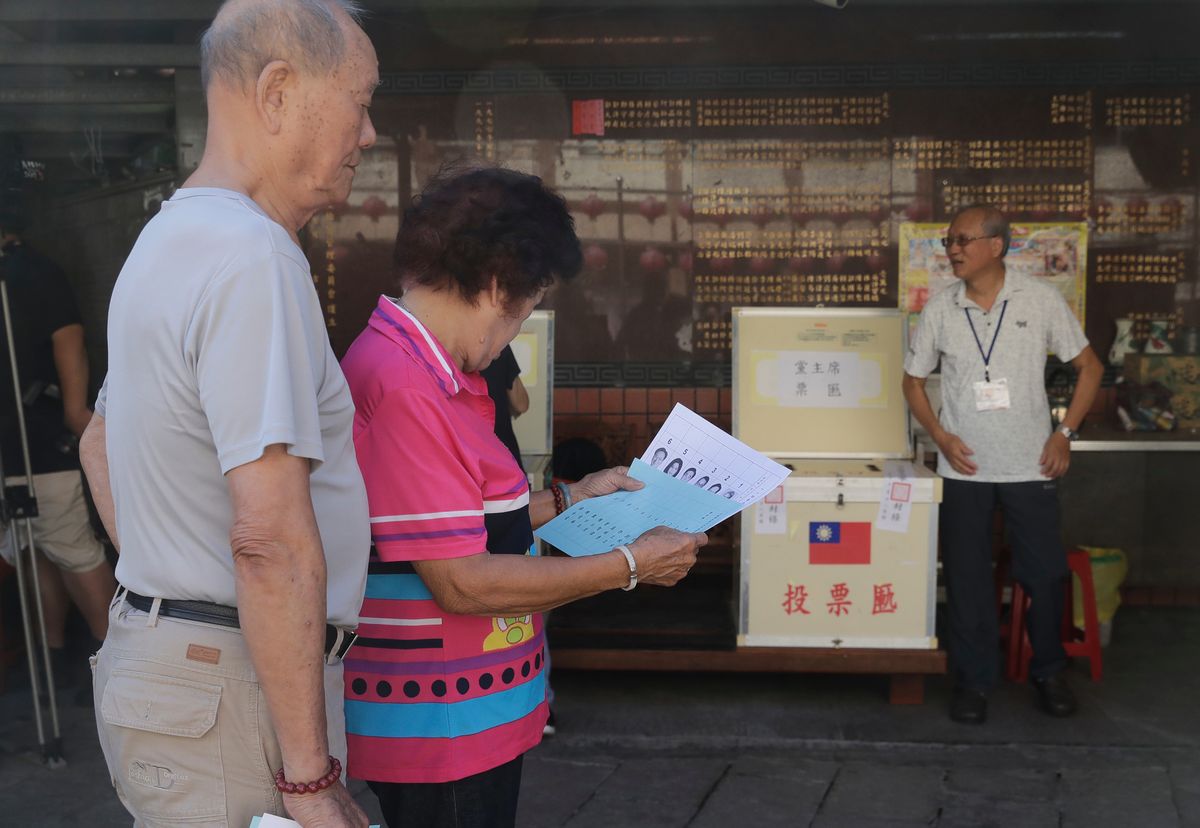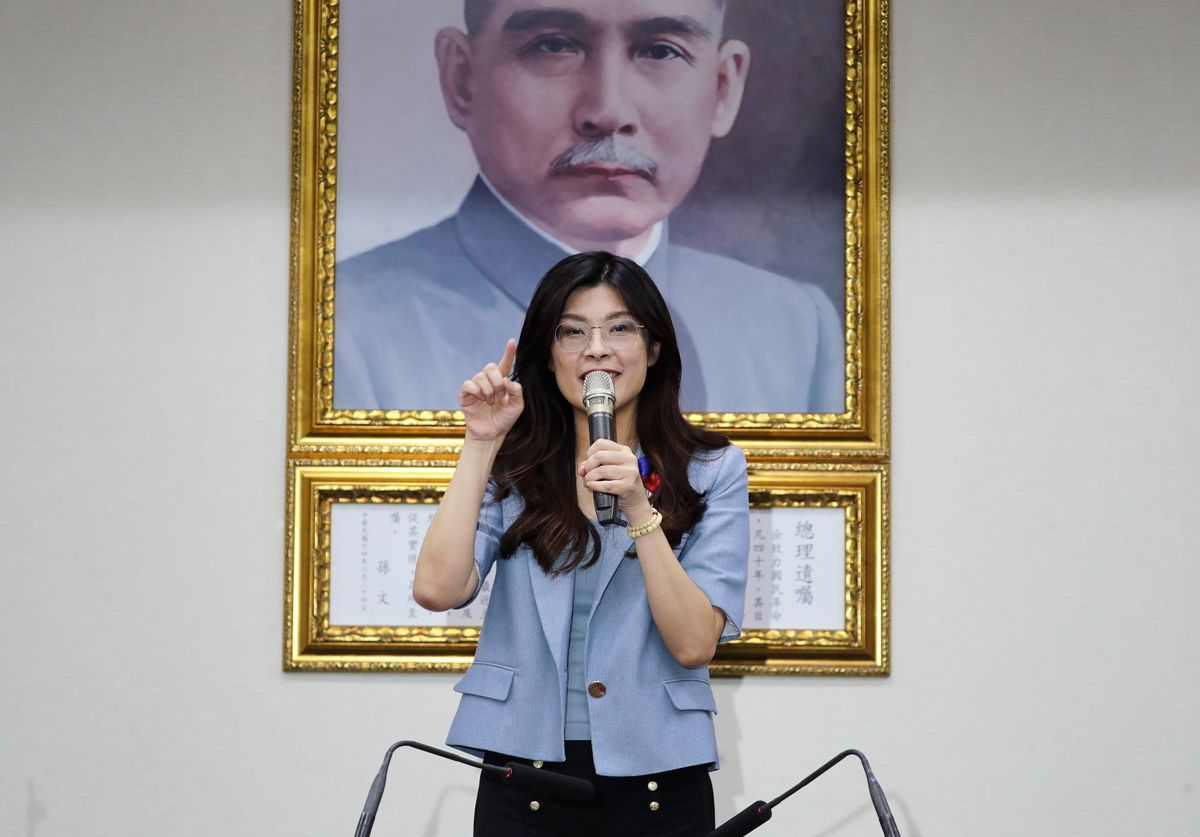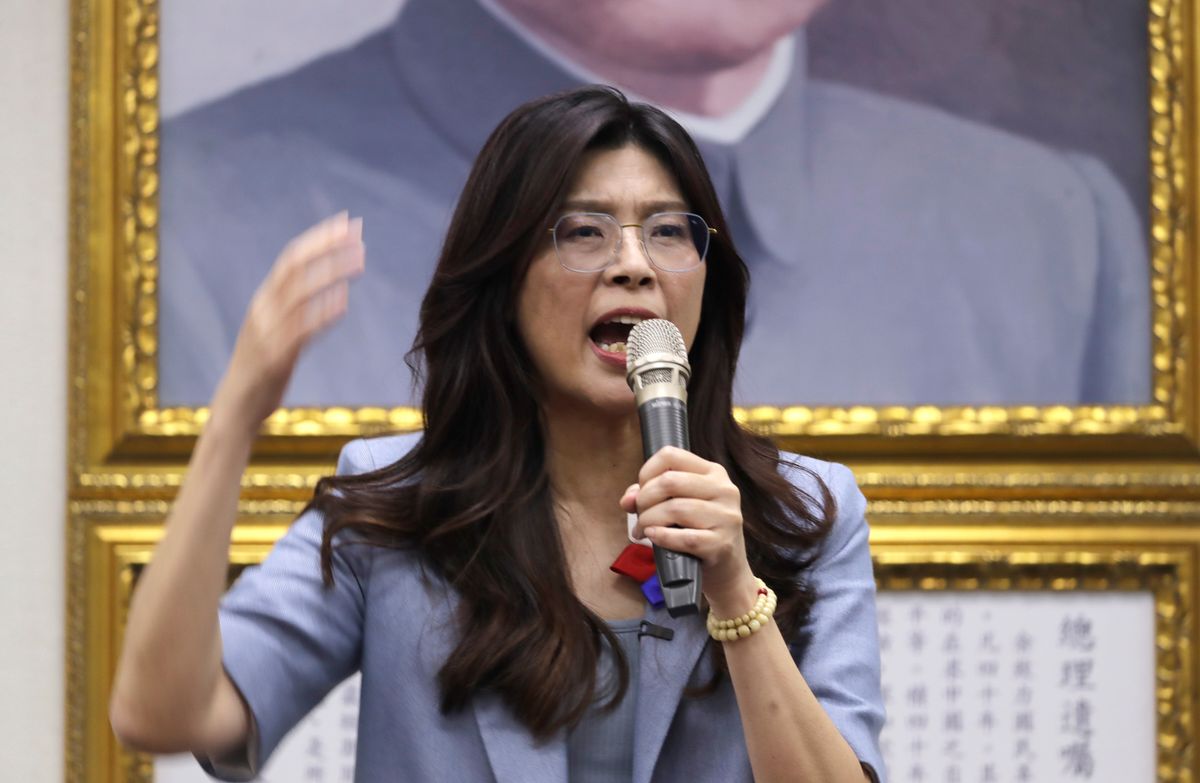TAIPEI, Taiwan (AP) — Taiwan ’s main opposition Nationalist Party chose a former lawmaker as its new chairperson on Saturday in a competitive election clouded by allegations of China’s meddling.
By a wide margin, Cheng Li-wun — the only female candidate in the race who positioned herself as a reformist — defeated former Taipei Mayor Hau Lung-bin and four others contesting the leadership of the China-friendly party. The Nationalists, also known as the KMT, maintain strong political influence in Taiwan despite losing three consecutive presidential elections to the independence-leaning ruling Democratic Progressive Party.
The KMT holds enough seats to form a majority bloc with its allies in the legislature and survived two recall elections just months ago that were sparked by concerns over their lawmakers passing changes seen as diminishing the power of the executive and favoring China, which considers the island as its own territory.
Scheduled to take office in November, Cheng could influence how Taiwan handles its relationship with Beijing and other key policies and domestic and international political matters. She will also anchor the party in the 2026 local elections. The KMT is also likely to field a candidate challenging President Lai Ching-te’s DPP in the 2028 race.
During her campaign, Cheng pledged to turn KMT from a flock of “sheep” into “lions,” opposing Lai’s proposal to boost defense budget to 5% of GDP, or gross domestic product, local media reported. She was once a DPP member.
In a news conference after the win, the party’s second elected female chair said the Nationalists would uphold the principles of equality, respect and mutual benefits in handling external relations.
“We must not let Taiwan become a troublemaker. Second, we must not let Taiwan become the sacrifice of geopolitics,” she said, adding her party would also be a peacemaker.
Beijing has a particularly strained relationship with Lai, whom it accuses of being a separatist. It has threatened to use force to bring Taiwan under its control, if necessary, and has increasingly mobilized military, diplomatic and economic pressure in an attempt to undermine Lai’s administration.
Traditionally, KMT has had warmer ties with Beijing, with Chinese politicians visiting for exchanges. Supporters of the KMT see the ties as beneficial to the island democracy’s stability and economy, but its critics are wary of the influence Beijing exerts.
Over the past week, Jaw Shaw-kong, Hau’s supporter in the party, alleged that China was involved in an organized interference, citing videos attacking Hau and supporting Cheng.
The head of Taiwan’s National Security Bureau, Tsai Ming-yen, said it found over 1,000 videos discussing the election on TikTok, in addition to 23 YouTube accounts posting related content, with over half of the YouTube accounts based outside of Taiwan. He did not say which candidates these videos supported or directly answer whether they were based in China.
Cheng rejected the allegations of China’s influencing her party as “very cheap labels,” urging politicians to return the island’s politics to rationality.
Chen Binhua, a spokesperson for China’s Taiwan Affairs Office, said Wednesday that Cheng’s election was the party’s internal affair and the views of some mainland Chinese internet users did not represent the government’s position.
DPP spokesperson Wu Cheng cautioned that Chinese interference was obvious and the KMT should carefully guard against it, saying his party hoped that the new chair would prioritize Taiwan’s safety over party interests.
Under late leader Chiang Kai-shek, the Nationalists rose to power in China during the 1920s, fighting invasion by Japan and then Mao Zedong’s communists, before fleeing to Taiwan with the remnants of his forces when Mao’s insurgents took power. Taiwan began transitioning from martial law rule to multiparty democracy in the 1980s and held its first direct presidential election in 1996.

